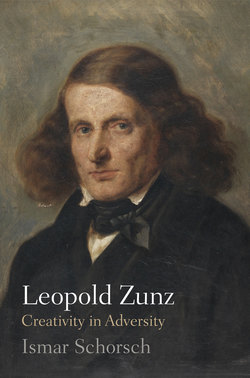Leopold Zunz

Реклама. ООО «ЛитРес», ИНН: 7719571260.
Оглавление
Ismar Schorsch. Leopold Zunz
Отрывок из книги
Leopold Zunz
CREATIVITY IN ADVERSITY
.....
If the school and archive were oriented toward the external state of the Jewish condition, the seminar and journal concentrated on its internal state. Not only did the high-minded rhetoric of the society concede at least partial Jewish responsibility for the deplorable condition of German Jewry, but it also granted the legitimacy of the government’s demand for the social homogeneity of all its citizens. Accordingly, the Verein espoused an agenda of total assimilation that would drastically shrink the scope of Judaism, eliminate all external differences, produce a radically altered rabbinic leadership, and return Judaism to its Mosaic foundation. In an age saturated with Hegelian idealism that believed ideas to be the engine of human events, the society invested in identifying and formulating the essential idea of Judaism as the centripetal force that would offset the centrifugal stress of total assimilation. Jewish singularity and influence historically were always to be found in the realm of ideas and values and not in the annals of statecraft or military prowess. Though Zalman Shazar (then Rubaschoff) when he republished Gans’s three presidential addresses in 1918–19 called them “the first fruits of dejudaization,” he knew full well that neither Gans nor the Verein advocated religious conversion. Political accommodation yes, but not religious betrayal. The society was acutely aware of the differences between the demands of the state and those of the church. Nor was it oblivious to the suffering of Jews at the hand of the church in the Middle Ages. But the Verein was desperate for Jews to reenter history after nearly two millennia on the sidelines. The mantra of the age was reconciliation and toward that end the Verein demanded the completion of the emancipation process, which would bestow the freedom Jews needed to regenerate themselves.78
The Verein’s preferred weapon of combat was critical scholarship, an empirical and rational science of universal import. Research would muster the data to convince the authorities of the contributions of Judaism to humanity and the right of Jews to find their place in the present political configuration. Internally, it would craft a narrative over time that would steel the resolve of Jews to remain distinct, if not apart, or in Gans’s resonant metaphor “as a current … in the ocean.”79 Aimed at two audiences then, scholarship would simultaneously be a source of truth and pride.
.....